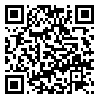Volume 32, Issue 3 (Summer 2024)
Avicenna J Nurs Midwifery Care 2024, 32(3): 184-195 |
Back to browse issues page
Ethics code: IR.UMSHA.REC.1401.935
Download citation:
BibTeX | RIS | EndNote | Medlars | ProCite | Reference Manager | RefWorks
Send citation to:



BibTeX | RIS | EndNote | Medlars | ProCite | Reference Manager | RefWorks
Send citation to:
Amiri Bonyad S, Karampourian A, Mohammadi Y, Khazaei M. Investigating the Effect of Training based on Virtual Social Networks and Telephone Follow-up on Resilience and Burden of Care among Family Caregivers of Stroke Survivors: A Randomized Clinical Trial. Avicenna J Nurs Midwifery Care 2024; 32 (3) :184-195
URL: http://nmj.umsha.ac.ir/article-1-2769-en.html
URL: http://nmj.umsha.ac.ir/article-1-2769-en.html
1- Student Research Committee, Hamadan University of Medical Sciences, Hamadan, Iran
2- Department of Medical-Surgical Nursing, School of Nursing and Midwifery, Urology and Nephrology Research Center, Hamadan University of Medical Sciences, Hamadan, Iran ,Karampor1@yahoo.com
3- Department of Epidemiology School of Health, Hamadan University of Medical Sciences, Hamadan, Iran
4- Department of Neurology, Medical School, Hamadan University of Medical Sciences, Hamadan, Iran
2- Department of Medical-Surgical Nursing, School of Nursing and Midwifery, Urology and Nephrology Research Center, Hamadan University of Medical Sciences, Hamadan, Iran ,
3- Department of Epidemiology School of Health, Hamadan University of Medical Sciences, Hamadan, Iran
4- Department of Neurology, Medical School, Hamadan University of Medical Sciences, Hamadan, Iran
Abstract: (4007 Views)
Background and Objective: The burden of care reduces the stability of family caregivers of stroke survivors in life. Resilience helps them to strengthen stability and adapt to life's adversities. Due to the global spread of the Internet, the provision of virtual-based educational interventions to affect resilience and burden of care seems useful.
Materials and Methods: In this clinical trial, 86 family caregivers of stroke survivors in Hamadan Besat Hospital were selected by convenience method and randomly assigned to intervention and control groups. Before the intervention, data were collected employing the Modified Rankin disability scale, demographic form, Connor-Davidson resilience, and Novak & Guest caregiver burden questionnaires. Thereafter, the intervention group received virtual training and telephone follow-up for a month. At the end of the intervention, as well as two weeks and one month later, resilience and burden of care were re-examined. Data were analyzed in SPSS software (version 25) using descriptive statistics, Independent t-test, Chi-Square, Fisher's Exact Test, and Repeated Measures ANOVA.
Results: Before the intervention, there was no significant difference in resilience and caregiver burden between the two groups. Nonetheless, after the intervention, a significant difference was observed in increasing resilience in the intervention group and decreasing it in the control group. Moreover, the burden of care increased in the intervention group and increased in the control group (P < 0.001).
Conclusion: Considering the positive effect of virtual training and telephone follow-up on caregivers' resilience and burden of care, it is suggested that healthcare providers, especially nurses, make use of this method in their training.
Materials and Methods: In this clinical trial, 86 family caregivers of stroke survivors in Hamadan Besat Hospital were selected by convenience method and randomly assigned to intervention and control groups. Before the intervention, data were collected employing the Modified Rankin disability scale, demographic form, Connor-Davidson resilience, and Novak & Guest caregiver burden questionnaires. Thereafter, the intervention group received virtual training and telephone follow-up for a month. At the end of the intervention, as well as two weeks and one month later, resilience and burden of care were re-examined. Data were analyzed in SPSS software (version 25) using descriptive statistics, Independent t-test, Chi-Square, Fisher's Exact Test, and Repeated Measures ANOVA.
Results: Before the intervention, there was no significant difference in resilience and caregiver burden between the two groups. Nonetheless, after the intervention, a significant difference was observed in increasing resilience in the intervention group and decreasing it in the control group. Moreover, the burden of care increased in the intervention group and increased in the control group (P < 0.001).
Conclusion: Considering the positive effect of virtual training and telephone follow-up on caregivers' resilience and burden of care, it is suggested that healthcare providers, especially nurses, make use of this method in their training.
Type of Study: Original Research |
Subject:
Education in Nursing and Midwifery
Received: 2023/08/5 | Accepted: 2023/10/6 | Published: 2024/09/19
Received: 2023/08/5 | Accepted: 2023/10/6 | Published: 2024/09/19
Send email to the article author
| Rights and permissions | |
 |
This work is licensed under a Creative Commons Attribution-NonCommercial 4.0 International License. |







 gmail.com
gmail.com